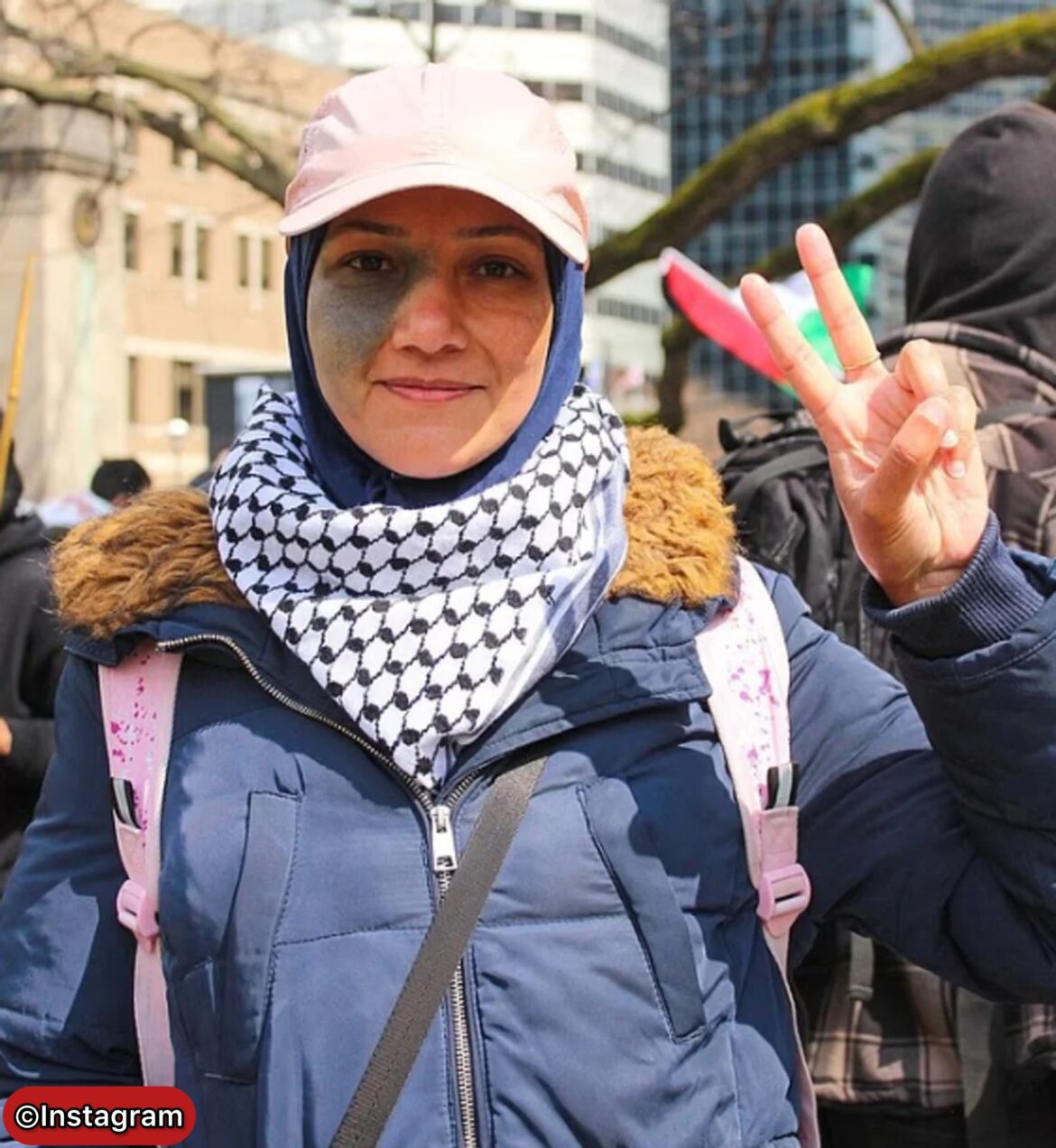A Palestinian asylum seeker has provoked widespread outrage after filming herself verbally abusing homeowners over Halloween decorations she claimed reminded her of Gaza.
Samar Alkhdour, 40, who sought asylum in Quebec in 2019, recorded herself shouting at residents for displaying fake severed limbs outside their property in footage that has sparked fierce debate about cultural sensitivities and integration.
In the video, she launched into an expletive-laden tirade, saying “F*** you all. F*** you, white people. F*** you, westerners.” The outburst has triggered accusations of racism and ingratitude towards the country that granted her refuge.
The human rights campaigner questioned whether displaying artificial body parts constituted acceptable holiday celebrations, expressing particular concern about the impact on her sister’s family, who recently fled Gaza. She demanded to know whether such decorations were acceptable and what was civilised or festive about them.
Ms Alkhdour’s sister arrived in Canada this year with two children, aged eight and nine, after spending eight months in Gaza before fleeing to North America. The activist argued the decorations were traumatic for youngsters who had witnessed real violence.
She told the Daily Mail it is not acceptable for children who have seen dismembered bodies and blood in real life, questioning how they could heal from trauma by seeing similar scenes as part of holiday celebrations.
After creating significant backlash, Ms Alkhdour attempted to clarify her comments, explaining her outburst emerged from shock rather than hatred towards all white individuals. She insisted she did not mean all white people and described her remarks as a critique of white culture rather than a racial attack.
She argued that Western society had corrupted Halloween’s original purpose of honouring the deceased, suggesting the holiday had become distasteful through its embrace of gore and horror imagery.
The footage triggered widespread condemnation on social media, with numerous users denouncing Ms Alkhdour’s language as discriminatory and ungrateful. Critics argued that individuals seeking sanctuary in Canada should demonstrate respect for the nation that provided them refuge.
One commenter stated that people who come to Canada seeking safety should at least respect the country that took them in. The sentiment was echoed across multiple platforms as the video spread rapidly online.
Several responses included calls for deportation, with messages stating “Don’t you like it? Go back home with your entire family” and “She won’t be happy here. Please let her go!” The hostile reaction demonstrated the limits of public tolerance for criticism of Canadian culture by recent arrivals.
Ms Alkhdour received numerous hostile private messages on Instagram, which she subsequently shared publicly. The messages included accusations of racism and claims she was exploiting Canadian taxpayer resources, reflecting broader tensions around immigration and asylum.
Despite the backlash, Ms Alkhdour remains resolute about continuing her advocacy efforts. She insists nothing will stop her activism because whatever happens to her in Canada is better compared to what is happening to Palestinians in Gaza.
The activist’s personal tragedy adds context to her emotional response. Her eldest child, 13-year-old Jana, died in Gaza in January 2024, just two weeks before Canadian authorities approved the family’s refugee documentation. The timing of her daughter’s death and their approved escape has clearly left deep psychological scars.
Ms Alkhdour has faced legal consequences for her activism in Canada, including three arrests and one detention during Palestinian solidarity demonstrations. Her willingness to court controversy and legal trouble suggests a determination to maintain a high profile on Middle Eastern issues.
In September 2024, she was amongst three protesters charged with criminal harassment of Montreal MP Marc Miller, though all charges were subsequently dismissed. The dropped charges may have emboldened her belief that Canadian authorities will tolerate confrontational activism.
The Halloween decoration controversy highlights tensions between newcomers’ cultural sensitivities and established Canadian traditions. Halloween has become increasingly elaborate in North America, with some homeowners creating elaborate horror displays featuring realistic gore effects.
Supporters of Ms Alkhdour argue that trauma survivors should not be expected to navigate graphic imagery that triggers memories of real violence. They contend that communities should consider the impact of extreme decorations on refugees who have witnessed actual atrocities.
Critics counter that Halloween decorations are clearly fake, part of long-standing cultural traditions, and that newcomers cannot reasonably demand Canadians abandon their customs. They argue that integration requires accepting local practices even when personally uncomfortable.
The incident has reignited debates about cultural accommodation, with some questioning whether Canada’s multicultural model has limits. Others defend the right of minorities to voice concerns about practices they find disturbing or offensive.
Ms Alkhdour’s use of racially charged language undermined sympathy for her position amongst many observers. The blanket condemnation of white people struck many as precisely the kind of prejudice that Canadian society seeks to combat.
The controversy also raises questions about Halloween’s evolution from Celtic harvest festival to commercial spectacle featuring increasingly graphic horror imagery. Some parents and community groups have expressed concern about the appropriateness of extreme decorations in residential neighbourhoods.
Whether Ms Alkhdour’s outburst prompts reflection about Halloween’s direction or simply hardens positions in Canada’s culture wars remains to be seen. What seems certain is that her confrontational approach has made productive dialogue more difficult.
Follow for more updates on Britannia Daily



